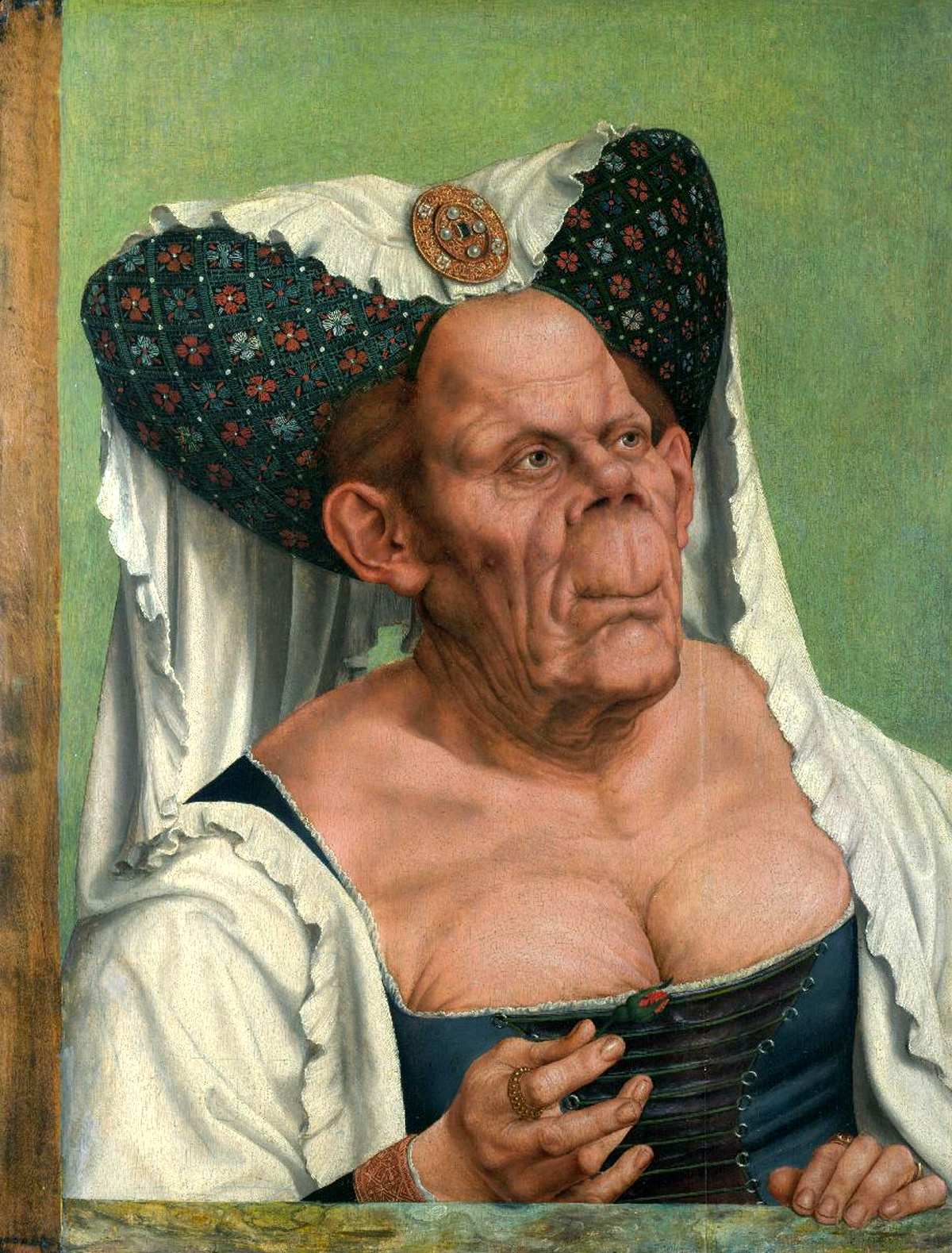An Old Woman is possibly one of the most beautiful, ugly paintings ever produced! Apologies for the oxymoron, but although the lady is quite horrid to behold, the picture itself is an exemplar of oil painting from northern Renaissance art. Metsys painted this unusual subject with veracity and lushness, depicting an old lady dressed in the fashion of her youth, holding out a rosebud in a romantic gesture. This might be a satirical depiction of an old woman behaving inappropriately for her age, but happily she is not a real person in this particular instance: there can be no doubt that Metsys at some point in his career must have seen and recorded someone with this appearance (now known to be caused by Paget’s Disease which deforms the bones), however there is no record of an aristocratic lady fitting this exact description, so it seems likely that he made drawings of someone with this condition and then dressed her up specially for his painting.
The persona that he has created is both laughable and sad. Here is an extremely undesirable, elderly woman making the suggestion that she is looking for love, and observing her out-of- date fashion, malformed features and wrinkly skin it is difficult not to smirk just a little bit, after all who would want to date her! Yet can we really laugh at her without our prejudices reflecting back on us? Suddenly we realise that the artist might be deliberately making us feel uncomfortable in order to show us that we’re not entirely without ugliness ourselves.
She really has to be one of the unluckiest women ever to live: not only is Paget’s disease remarkably infrequent, but it rarely affects anyone below the age of fifty, and affects women even less. Knowing these facts I think that the modern viewer is more sympathetic towards the Duchess, but the Renaissance mind was less forgiving, so I also have to wonder if Metsys ever dreamed that she would be viewed through a lens other than one of cruelty and ridicule.
- Sarah




An Old Woman ('The Ugly Duchess')
oil on wood • 62.4 x 45.5 cm
 Quentin Metsys
Quentin Metsys